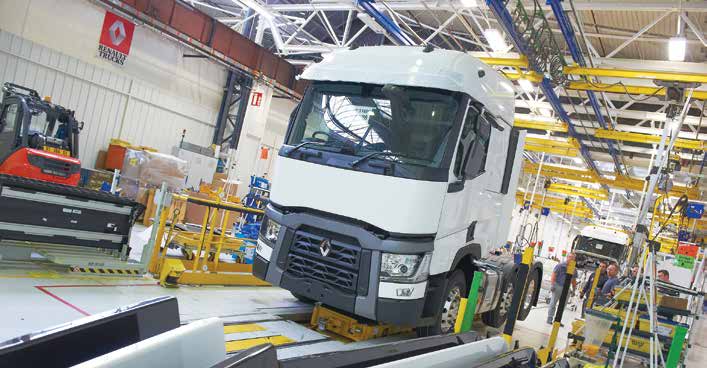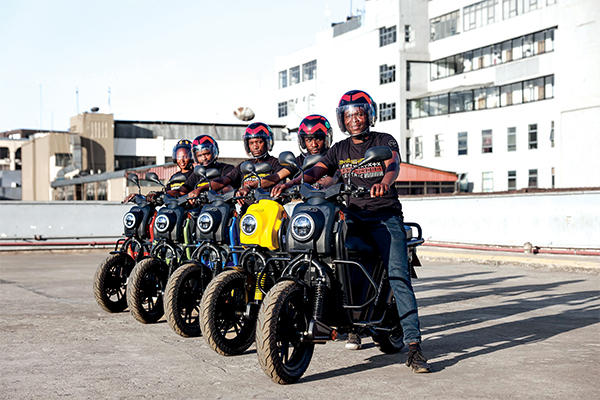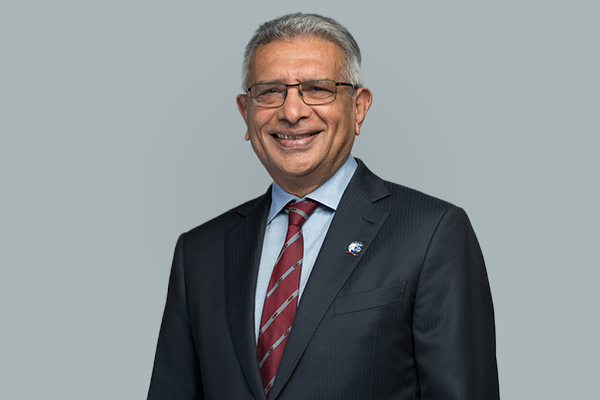With the National Automotive Policy aiming at banning the importation of fully built up (FBU) vehicles with an engine capacity exceeding 1500cc, a number of local motor firms, with the support of global auto manufacturers, have embarked on rehabilitating a number of the already existing local vehicle assembly plants and establishing new ones, with the view of assembling vehicles locally. Most of them have started with trucks, buses and pick-ups for commercial use, buoyed by the expanding needs from the mining and construction sectors.
Local assembly of vehicles will reportedly create quality jobs while providing a base for the development of a manufacturing sector, churning out parts and components for the local assembly, usually referred to as local content. If successful, the manufacturing of local vehicle components will spur economic growth and create new and sustainable employment.
The National Automotive Policy when fully implemented, will regulate the age limit of imported vehicles progressively, to expand the market for locally assembled vehicles, and importation of fewer FBUs vehicles. This will be implemented from 8 year to 5 years in 2022; from 5 years to 3 years in 2024 and; from 3 years to zero in 2026. This will be reviewed from time to time as discussed and agreed upon by the stakeholders.
According to the ministry of industrialisation, the three local vehicle assemblers in Kenya, churn out about 6,000 units a year, on a single shift, which is less than the installed capacity.
Kenya National Bureau of Statistics (KNBS) states in an interim report that the number of vehicles assembled in Kenya increased from 3,241 in 2018, to 4,406 in 2019, between the months of January and July. Toyota Kenya and French Automaker Renault Trucks are among the most active firms that have started to assemble commercial vehicles in Kenya.
Toyota Kenya has begun in earnest to assembly the Hilux pickups in Kenya, a move necessitated by the government’s directive that gives preferential treatment in the procurement of motor vehicles and motorcycles to firms that have assembly plants in Kenya. The assembly line, located at the Associated Vehicle Assemblers (AVA) in Mombasa, is the third Toyota model to be assembled locally, adding to the Toyota Land Cruiser and the Hino 300 and 500 series trucks and buses.

The Hilux currently being assembled in Mombasa, is the fourth generation and is the top rival to Isuzu D-Max in the one tonne pick-up truck segment and is one of the most popular and top of mind pick up among business buyers.
French Automaker Renault Trucks has opened its local vehicle plant in Thika, to facilitate local assembly of its K-Range heavy-duty trucks. This comes months after the French firm spent Sh58 million to upgrade the Kenya Vehicle Manufacturers facility in this industrial town. This is to support Kenya’s main policy objective to make the country an automotive assembly and manufacturing hub in the eastern and central African region.
This comes in line with Renault’s return to the region, taking Kenya as the development hub to achieve the firm’s long-term vision, alongside CMC Motors, Renault trucks exclusive partner in the country.
The presence of Renault trucks in Kenya has raised competition in the new heavy truck sector that has so far been dominated by Isuzu East Africa, Simba Corporation, and DT Dobie. Renault targets to have assembled 150 trucks for the local market by the end of 2022 with the aim of further expanding its footprint in the East and southern Africa region.
The automaker also anticipates assembling other models in the coming years depending on the market’s response to the 6 by 4 trucks. Growth in the construction, mining and trade industries has increased demand for heavy commercial vehicles, which are often purchased brand new from official dealerships unlike most passenger cars in Kenya.
The French company signed an agreement in December 2018, with CMC Motors to use the dealer’s distribution network comprising eight branches across Kenya and a central warehouse in Nairobi. Renault has four other hubs in Ghana, Morocco, Cameroon, and Tunisia tasked with distributing its trucks and conducting after-sales services across the continent.
Other than the world-renowned Mercedes Actros Trucks, DT Dobie is also locally assembling the Hyundai Truck and Bus models. The leading models include Hyundai HD 65 heavy duty and the Hyundai 72 light duty trucks. Most users plying Hyundai trucks opine that the proof is in the profit, as these trucks partner in every way with the fleet owners through reliability, durability and low fuel consumption. These three attributes reduce the maintenance costs when using the Hyundai trucks especially on long hauls.
With low retail price, starting from Ksh 2,950,000 and a tailormade finance options on tow, the Hyundai Trucks are built to suit all your business needs, from the low maintenance costs to an elaborate aftersales service and parts backup. DT Dobie boasts of an elaborate branch network in Nairobi, Mombasa, Nakuru and Kisumu.
Recent Posts
-
 Top 25 Corporations Walking the Talk in ESGMarch 12, 2025/33 Comments
Top 25 Corporations Walking the Talk in ESGMarch 12, 2025/33 Comments -

-


Share:
In a nutshell, the Hyundai Trucks are built for Kenya, by Kenyans; economical, tough, proven.
At Simba Corporation, the brand reverberating at the moment is the legendary Mahindra from India. Under the sales banner, ‘Simba wawili wakiungana, wateja hufaidika’ the models of the moment include Big Bolero, Scorpio Single and Scorpio Double Cabin derivatives.
Simba Corporation entry into local assembly is buoyed by the tax incentives that will see it reduce buyer price in the increasingly competitive one tonne pickup segment, in a price sensitive market that is tilted towards used vehicles. Vehicle dealers assembling locally are exempted from the 25 percent import duty levied on fully built up imported vehicles, an incentive that gives room for lower pricing. For the economy, local assembly create a local value chain through local content manufacturing and value adding services that will benefit the economy through quality jobs and new wealth creation.
Simba Corporation Group CEO Dinesh Kotecha, says the group aims at using the high value product to the market to increase consumer access and gain market share in the increasingly competitive commercial pickup vehicle segment, quoting Business Daily’s Edwin Okoth in an article on the same.
‘We are confident that Mahindra will solidify its presence in the market with the local assembly of pickups,’’ he said then.
The Mahindra is assembled at Simba Corporation’s AVA Plant in Changamwe, Mombasa and marks a new chapter for Mahindra
Finance is available up to 90%, with loan repayments starting after 60% days. In addition, working capital can be accessed for your business through a partnership with KCB Bank. With the Mahindra pickups and the financial plan in place, Simba Corporation is eyeing MSMEs with an affordable business workhorse. Adds Kotecha, ‘The locally assembled pickup will enable small and medium sized enterprise owners to access an affordable, high quality vehicle that provides real value for money.’’
The Mahindra pick-ups have been present in the Kenya market since 2012 through a franchise agreement with Simba Corporation.
Mahindra pickup adds to Simba Corporation’s list of locally assembled vehicles including Mitsubishi range of trucks and buses at its AVA Plant in Mombasa.
Subscribe to our newsletter
Don't miss new updates on your email
Simba Corporation branch after sales, parts and service network is available in Nairobi, Mombasa, Kisumu, Kisii, Narok and through a dealer network in Nakuru, Eldoret, Thika, Nanyuki and Machakos.
Isuzu East Africa is also assembling its indomitable D-Max pick-up trucks in Kenya, bringing to a halt the importation of these very popular work horses from the Isuzu Plant in Port Elizabeth, South Africa.
The Isuzu completely knocked down (CKD) parts are being imported into the country, and assembled at the Isuzu Plant located on the junction of Enterprise Road and Mombasa Road in Nairobi, giving the firm tax benefits that allow Isuzu East Africa to lower the unit price of the locally assembled D-Max pick-up trucks. The competitive pricing will enable the D-Max to curve a bigger slice of the market segment that is currently lost to used directly imported pick-ups, which do not feature tropicalised specifications for long hauls in the rugged terrain that is Kenya.
Isuzu East Africa remains the market leader in the segments it competes in with over 34 percent of the market, a no mean achievement in the cut-throat and most competitive environment that Isuzu operates in. The lowered pricing of the D-Max enables Isuzu to defend and gain market share in the increasingly competitive pickup truck segment.
According to Rita Kavashe, the CEO of the global Isuzu East Africa operations, ‘Our import tariffs are lower on the CKD kits, we are creating employment and we are positively influencing employee and customer morale by assembling the Isuzu D-Max locally.’’ In the recent past, Isuzu focussed the local assembly only on trucks and buses while importing the pick-up from South Africa.
Isuzu range of cars, trucks and buses, achieved market leadership in Kenya for the first time in 2010, when the Japanese make curved out a record market share of 24.25 per cent, slowed down a bit in 2011 at 23.5 per cent, before reclaiming industry leadership in 2012 with 25.96
percent. What is most remarkable is Isuzu’s ability to retain market leadership, with increased performance each year, and stood at 38.4 percent in 2019, with a bit of a chamfer in 2018 when the market share stood at 34.5 percent, mainly attributed to unpredictable environment as a result of a protracted political turmoil resulting from the disputed 2017 general elections.
These figures consider heavy commercial vehicles (trucks), light commercial vehicles (pick- ups) and the SUV, where Isuzu is curving out a niche with the all new Isuzu mu-X.
Isuzu provides a countrywide aftersales, spare parts and workshop service through independent dealerships and agents located in every corner of the country.
















